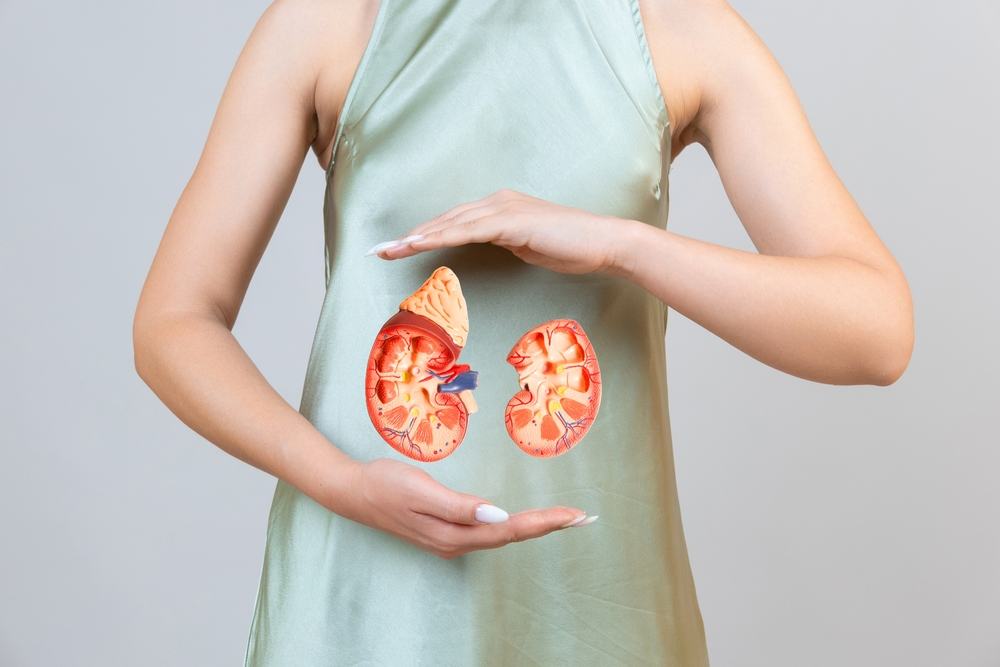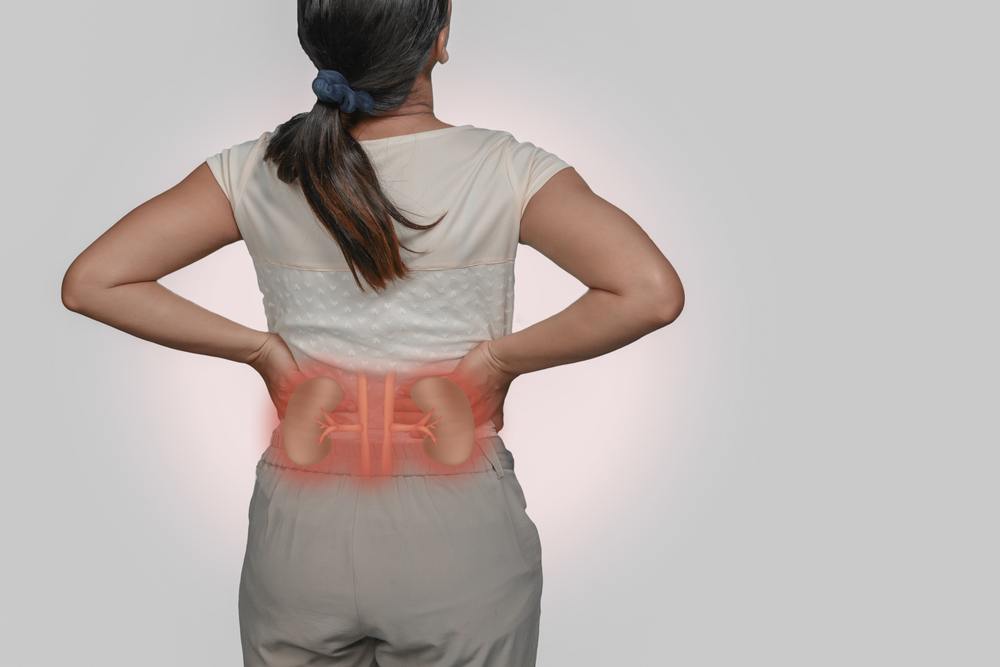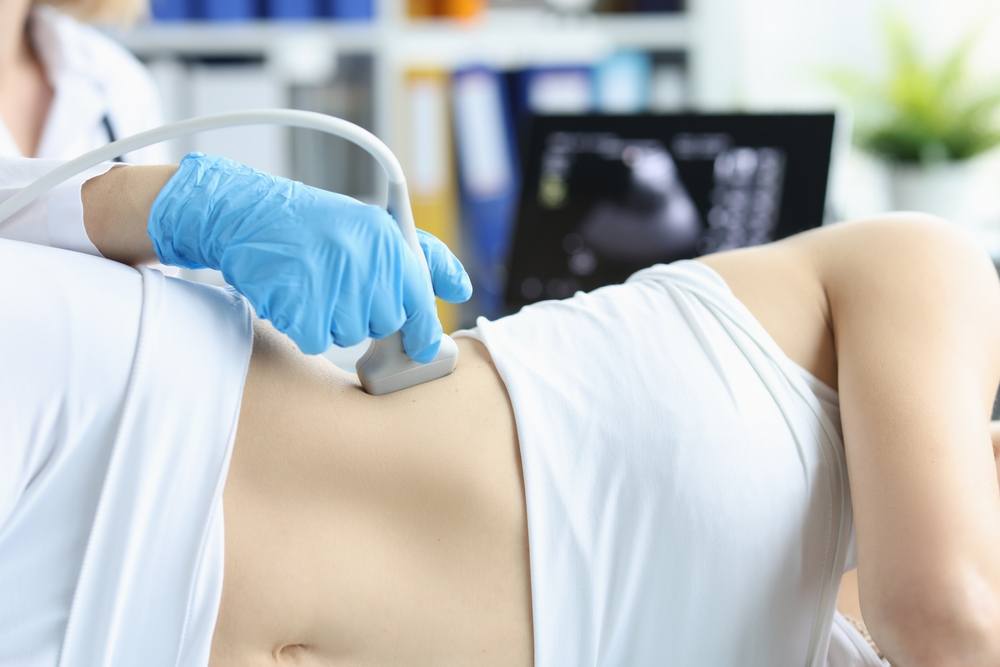 Car accidents cause millions of injuries in the US each year. While you have likely heard of more common car accident injuries like whiplash or broken bones, you might not be as familiar with how a car wreck can cause damage to your internal organs. In fact, a sudden blow to part of your body or the violent jostling that can take place with a forceful collision can lead to serious, even life-threatening, injuries you may not recognize right away. Damage to one or more of your internal organs can include serious injuries like internal bleeding, kidney failure, and lifelong impacts on your health. While bones, muscles, and other tissues are designed to help protect organs like the kidneys from damage, a sudden blunt or penetrating trauma to the area could cause you to go into kidney failure. Here’s everything you need to know about how kidney failure can be caused by a car accident.
Car accidents cause millions of injuries in the US each year. While you have likely heard of more common car accident injuries like whiplash or broken bones, you might not be as familiar with how a car wreck can cause damage to your internal organs. In fact, a sudden blow to part of your body or the violent jostling that can take place with a forceful collision can lead to serious, even life-threatening, injuries you may not recognize right away. Damage to one or more of your internal organs can include serious injuries like internal bleeding, kidney failure, and lifelong impacts on your health. While bones, muscles, and other tissues are designed to help protect organs like the kidneys from damage, a sudden blunt or penetrating trauma to the area could cause you to go into kidney failure. Here’s everything you need to know about how kidney failure can be caused by a car accident.
Understanding How the Kidneys Work
Most people have two kidneys in the lower back on either side of the spine. The average kidney is the size of a fist, and each kidney contains millions of units called nephrons that clean and filter blood that passes through the organ. Kidneys are vital internal organs that filters the blood and removes toxins from the body. Once kidneys filter these toxins, they move into the bladder and get eliminated through the production and release of urine. The kidneys also help regulate fluids in the body, like the levels of salt, potassium, and acid content. Kidneys also produce hormones that support the healthy functioning of other organs in the body. From removing waste from the body to balancing your body’s fluids, you need your kidneys to function properly because of the vital role they play in keeping you healthy.
Types of Kidney Failure
There are five types of kidney failure that are used to clarify how your kidneys suddenly stopped working properly. The five types of kidney failure include acute prerenal kidney failure, acute intrinsic kidney failure, chronic prerenal kidney failure, chronic intrinsic kidney failure, and chronic post-renal kidney failure. Any one of these five types of kidney failure could occur due to the effects of damage to one or both kidneys during a car accident.
Acute vs. Chronic Kidney Failure
Acute kidney failure refers to the sudden onset of your kidneys failing to work properly. When your kidneys suddenly lose their ability to effectively clean and filter your blood or regulate the body’s fluids, you can develop life-threatening symptoms and issues. Acute kidney failure can develop rapidly, sometimes within a few hours. A car accident injury could cause a sudden decrease in blood flow to your kidneys, which can trigger acute kidney failure. On the other hand, chronic kidney failure can occur more gradually over time, though this could develop because of a complication from a car accident injury. Severe bleeding or lack of oxygen to the kidneys can result in chronic kidney failure.
Signs & Symptoms of Kidney Failure
 Early signs of kidney failure are not always noticeable, which is why you always want to get checked out by a car accident doctor after a wreck. Car accident doctors can run necessary tests and help rule out serious injuries to the kidneys or other internal organs that could lead to life-altering conditions. In the event of sudden trauma to the kidneys, like with a car accident, you could also experience signs and symptoms of kidney failure more rapidly. Early symptoms of kidney failure can include a decrease in urine output, an increase in fluid retention, swelling in the extremities, and shortness of breath. As kidney failure progresses, you may experience excessive drowsiness or fatigue, nausea, confusion, pressure in your chest, seizures, or even a coma. Kidney failure can cause your urine to change colors, and pink, red, or foamy urine can be a potential red flag for issues with your kidneys after a car accident.
Early signs of kidney failure are not always noticeable, which is why you always want to get checked out by a car accident doctor after a wreck. Car accident doctors can run necessary tests and help rule out serious injuries to the kidneys or other internal organs that could lead to life-altering conditions. In the event of sudden trauma to the kidneys, like with a car accident, you could also experience signs and symptoms of kidney failure more rapidly. Early symptoms of kidney failure can include a decrease in urine output, an increase in fluid retention, swelling in the extremities, and shortness of breath. As kidney failure progresses, you may experience excessive drowsiness or fatigue, nausea, confusion, pressure in your chest, seizures, or even a coma. Kidney failure can cause your urine to change colors, and pink, red, or foamy urine can be a potential red flag for issues with your kidneys after a car accident.
Common Causes of Kidney Failure
The two most common causes of kidney failure are diabetes and high blood pressure. However, you can also develop kidney failure suddenly or gradually due to one or more of the following causes.
Blood Flow Loss to the Kidneys
If the kidneys start to experience low blood flow, this could trigger kidney failure. Certain health conditions can cause a sudden or gradual loss of. Blood flow to the kidneys, including dehydration, allergic reactions, heart disease, or a heart attack. High blood pressure can also limit the amount of blood flow to the kidneys.
Urine Elimination Problems
If you have difficulty urinating, the toxins your kidneys have filtered from your blood can build up and overload the functioning of these vital organs. If urine passageways become blocked, this could interfere with urination and lead to kidney failure. Damage to nearby nerves that control your bladder could also cause urine elimination problems.
Types of Inflammation
Certain types of inflammation can also put you at greater risk for kidney failure. Vasculitis, where blood vessels become inflamed, can lead to kidney failure. Lupus is a health condition and autoimmune disease where many of the body’s organs can experience inflammation, including the kidneys.
Infection
Certain viruses can also lead to kidney failure, including Hepatitis B, C, or E. Bacteria or a virus in the kidneys can cause lasting damage and may even spread to the bloodstream, requiring prompt medical treatment.
Certain Medications
Certain antibiotics, chemotherapy drugs, or even anti-inflammatory medications can disrupt the healthy functioning of the kidneys and even lead to kidney failure. Talk to your doctor about all medications you are taking to make sure you avoid any adverse reactions. Always take your medications as prescribed, and never take more medication that is safe for your body.
Renal Trauma from a Car Accident
Renal trauma refers to any type of injury or damage to the kidneys by an exterior force. If you experienced trauma to the area where your kidneys are located, you might notice painful bruising in the abdominal region. Sudden bruising could also be a sign of internal bleeding in the area. Kidney trauma can also cause an increased heart rate, dizziness, or fainting. Sudden renal trauma can cause severe pain in the abdomen that can be made worse with movement.
Your ribcage, back muscles, and other tissues help protect the kidneys, but a severe blow, known as blunt trauma, to the area during a car accident could cause renal trauma. In the event of a car accident, renal trauma could be caused by a sudden impact with part of the car’s interior. The force of the impact could also cause your body to jolt forward and backward quickly, especially for young children.
A penetrating trauma refers to when an object penetrates the skin and can also do damage to internal structures and organs. A penetrating trauma to your lower back could injure your kidneys and other vital organs in the area. A piece of the vehicle or flying debris could enter the body and lead to serious injury. Whether you suffer blunt trauma or penetrating trauma, both types can prevent one or both kidneys from functioning correctly and lead to serious complications. Any type of damage to your internal organs, including the kidneys, should be addressed by medical professionals as soon as possible.
Complications of Renal Failure
If you experience kidney failure after a car accident, this can also lead to various health complications. When your kidneys can’t work properly, it can impact your body’s ability to create red blood cells and cause anemia. Kidney damage can also impact minerals in the body and lead to bone weakness. You can also experience fluid buildup in the body because of renal failure. When your kidneys can’t filter water from your blood properly, this can cause fluid to build up in your arms, legs, or even your lungs. Other complications of kidney failure include heart disease, elevated potassium levels, kidney stones, bone disease, or even heart failure. Secondary complications that develop because of kidney failure also include liver failure, nerve damage, and mental health effects like depression.
Diagnosing Renal Failure
 Treatment for minor renal trauma may include getting checked out at the hospital to confirm there is no blood present in the urine before you can go home. Afterward, you would need to continue to monitor your urine output for any bleeding and check for high blood pressure. In serious cases of renal trauma, surgery may be necessary. Here are some of the ways your doctor may diagnose kidney failure caused by a car accident.
Treatment for minor renal trauma may include getting checked out at the hospital to confirm there is no blood present in the urine before you can go home. Afterward, you would need to continue to monitor your urine output for any bleeding and check for high blood pressure. In serious cases of renal trauma, surgery may be necessary. Here are some of the ways your doctor may diagnose kidney failure caused by a car accident.
Diagnostic Imaging
Diagnostic imaging tools like ultrasounds, X-rays, and CT scans can be invaluable in providing your doctors with important information after a car accident. These diagnostic tools can help detect internal bleeding, show any damage to internal structures or organs, and identify blockages or other issues.
Urinalysis
Your doctor may request a urine sample to test for any issues with your kidneys. A urinalysis can identify any atypical proteins, sugars, bacteria, or other toxins in your urine that could signal an issue with the kidneys.
Blood Samples
Your doctor may also run blood tests to check whether or not your kidneys are properly filtering substances. A blood sample can check for things like creatinine and blood urea nitrogen levels, which can indicate kidney failure.
Tissue Samples
In some cases, your doctor may take tissue samples from the kidney to test for unusual deposits, infectious organisms, or scarring. A tissue sample is also known as a kidney biopsy.
Treatment Options for Kidney Failure
Several treatment options are available for renal failure, though the type of car accident injury and severity of your renal trauma will depend on which treatment is best for you.
Dialysis
Dialysis is a type of treatment that helps filter and purify your blood through a dialysis machine. This machine simulates the healthy functioning of the kidneys and can help extend your life with regularly scheduled treatments. In the event of an emergency medical situation, like sudden renal trauma, you may receive dialysis to help prevent permanent loss of kidney function.
Kidney Transplant
A serious case of kidney failure could mean that you need to have your kidney removed and get a kidney transplant. Severe damage to the kidney suffered during a car accident could mean that a surgeon removes your kidney as a life-saving procedure. Then you may go on the transplant list for a kidney and require regular dialysis treatments until you receive a donor kidney that is compatible with you.
Lifestyle Modifications
Your doctor may recommend you keep track of certain foods or nutrients you eat each day to help you support your kidneys after renal trauma from a car accident. This could include limiting your sodium or potassium intake and cutting back on certain proteins. Your kidneys have to work harder when processing alcohol, so limiting your alcohol intake can help better support your kidneys.
Visit a Car Accident Doctor for Help
If you are concerned about your kidney health, reach out to your doctor as soon as possible. At AICA Orthopedics in Atlanta, our team of car accident doctors is here to help all car accident victims recover safely and effectively. We offer state-of-the-art diagnostics, including X-rays, CT scans, and MRI scans, in the office, which means you don’t have to go to multiple places to get the scans you need. Our car accident doctors include orthopedists, neurologists, chiropractors, and physical therapists who work together to provide you with comprehensive care for your injuries. Contact an Atlanta car accident doctor at AICA Orthopedics near you right away to learn about your kidney failure prognosis and outlook.
If you develop kidney failure suddenly due to a car accident injury, our team at AICA Orthopedics in Atlanta is here to help. Find a convenient location near you in the metro-Atlanta area to get started with an individualized treatment plan and work with our professional team of doctors who will support you through rehabilitation and recovery from your car accident injuries.
